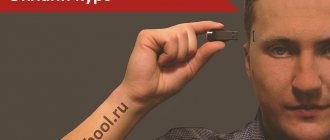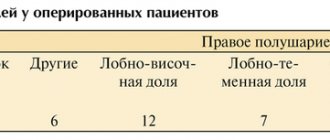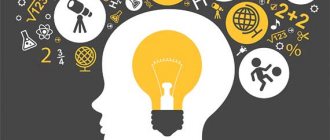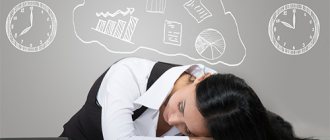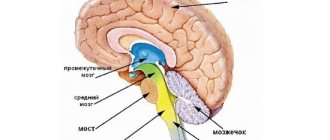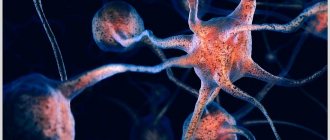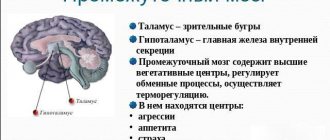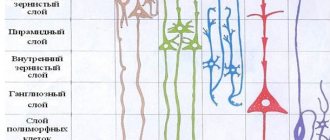As an epigraph, I would like to cite the words of the famous scientist, researcher and popularizer of science Konstantin Vladimirovich Anokhin, who devoted most of his life to studying the phenomenon of the brain:
“The human brain is nature's greatest mystery. Today we know more about the laws of the world around us, the cosmos, the universe, than about ourselves. But if man is created by nature, then we can hope to understand the nature of this phenomenon.”
The main signs of a modern successful person
- high intelligence;
- good memory;
- creativity;
- intuition;
- efficiency;
- the ability to quickly make the right decisions;
- the ability to easily absorb new knowledge.
The psychological functions of the brain are derived from the work of millions of cells. Among the average person who is far from academic science, a superficial judgment has long been strengthened, the essence of which boils down to the statement that the average person uses his brain only 3-5%.
Many people ask the question - how to make the brain work at 100? The answer is not easy to find. The core of the central nervous system is a highly organized structure, which, in addition to cognitive processes (memory, thinking, imagination), is responsible for maintaining life in the human body and regulates all biological processes occurring in it.
It is the brain that makes our heart beat, controls our lungs, and makes us pull our hand away from a hot object at the first sign of pain (thanks to the ability to feel pain, we can hope to live to a ripe old age).
Most of the processes occurring in the head should not be realized, otherwise it can lead to disaster. Epilepsy is a disease that leads to disruption of the brain structure. The brain is unable to control the activity of certain areas, which leads to memory loss and convulsive fainting.
How to make the central nervous system work faster
Chess will help us answer this question. High-level chess players spend a huge amount of time preparing for tournaments and this is not surprising.
Memory training, reaction speed, the ability to make important decisions under limited time, calculating game options 30-40 moves ahead - all this makes playing professional chess not an easy task.
All premium class chess players are actively involved in sports, and this despite the fact that chess is difficult to associate with physical activity, and opponents spend most of the game sitting in comfortable chairs.
Our body is an interconnected system. Proper brain function depends on many factors:
- clearly defined regime (sleep, eating, walking in the fresh air, physical activity)
- proper nutrition, diet
- competent alternation of periods of stress and time for rest
- correct emotional state
- motivation
- household comfort
One of the simple answers to the question of how to make the brain work as efficiently as possible will sound like this - lead a healthy lifestyle!
The brain, like the muscles, should be exercised!
Don't avoid new things. When you find yourself in an unfamiliar environment or face another problem that requires a non-standard solution, you force your brain to work. This should become a habit.
Over time, many problems that previously seemed like complex equations will turn into entertaining puzzles. The power of the main processor is directly related to the amount of information processed.
The main thing is a sense of proportion. You shouldn’t overload yourself with work, but you won’t be able to stand still. Either you develop slowly and surely, or you go down a notch.
How to develop the brain and memory of an adult?
The development of the brain, taking into account the constantly decreasing number of neurons, is the formation of new neural connections. The latter are formed by performing new actions and repeating them.
That is, in order for the brain to develop, you need to constantly give it new food and ensure the repeatability of this process.
What should be done?
The easy way
One scientist gerontologist conducted research on the longevity of nuns in one community. Of the 150 nuns, 25 were over 90 years old, the oldest of them being over 100 years old.
They were all sane. Alzheimer's disease bypassed them. It turned out that they completely lack idleness of mind.
What are they doing:
- writing dissertations (where would you like to study? Maybe this is the moment?)
- play mind games
- solve puzzles
But most importantly, they keep diaries in which they write by hand. But they don’t just list what happened from morning to evening, although this exercise alone greatly develops memory.
They reflect on their lives, think, invent, make plans.
Thus, to develop your brain, you must write, keep a diary.
Direct benefits of working with your hands
Why do you think that you need to write by hand, rather than typing on a computer?
Because the cerebral cortex is connected to the fingers through more than 3000 mechanoreceptors. And by developing our fingers, we develop our brain.
Working with both hands, we develop both hemispheres of the brain, and this is very important. By developing the left hemisphere, we develop only the left hemisphere.
By developing the right hemisphere, we develop the entire brain. This was said by the French scientist I. Saunière.
There are special exercises for the hands that synchronize the work of both hemispheres of the brain. There are a lot of them, I will list some of them.
We rub our ears.
We knead and rub each ear with the same hand. We stretch the ear. Pull up and out. We go from top to bottom, from the top edge of the ear to the lobe. Grind until hot. Don't forget about the auricle, we massage it too.
We make rings.
We connect each finger of the hand with the thumb, starting from the little finger to the index finger. As soon as it becomes good, we modify the exercise. We change direction, now starting with the index finger.
Yoga for the brain
It serves to pump up cells and increase neural activity in the brain. Those who want to improve memory and improve learning ability, including children in school, should definitely do this.
Stand up straight. Take your right earlobe with your left hand, and your right earlobe with your left hand. Start squatting. Squat - inhale, straighten up - exhale.
3-5 minutes every day.
Combining business with pleasure
We can talk a lot about music for a long time. How it affects the development of the brain and memory, you can read the article How to use music for the development of the brain and memory - personal experience. 5 best compositions (opens in a new window).
It is important to listen to different music. Deep, relaxing, the one you like. We have fun and our abilities increase.
Music enlivens the emotions and feelings that are associated with the right hemisphere. They stir him up and turn on images.
This was proven by scientists at the Montreal Neurological Institute using tomograms. When listening to music, the areas of the brain that are responsible for vision in the right hemisphere of the brain are also activated.
Listening to music, we see images, develop the right hemisphere with its imagination, intuition, and figurative memory.
And if you listen to Mozart’s music, then almost your entire cerebral cortex works.
His music is filled with the play of sounds, their flow, transitions that unexpectedly appear out of nowhere. The biocurrents of the brain “work” in the same 30-second ri.
Listen to Mozart, and just the music that you like. There is music that expands memory. About such music, read the article How to use music to develop the brain and memory - personal experience. 5 best compositions (opens in a new window).
But that's not all.
What can you say about polyphonic works? Do you know these?
Polyphony is multi-voice compositions. Listening to such music, each time a voice enters, the brain is activated, which is clearly visible on the encephalogram.
Therefore, to develop the brain, thinking, and memory, be sure to include polyphonic works.
What are these compositions? For example, I.S. Bach Toccata and Fugue in D minor for organ BWV 565.
You have all heard it many times and know it well:
You can also listen to the master of polyphony Josquin Despres. Here, for example, is this composition:
The most secret exercise for brain and memory development that no one knows about
Be a drummer. Learn to beat the rhythm. Try it with one hand first, then let the other repeat the same rhythm. If you are right-handed, it will be more difficult for your left to do this.
When everything works out, make the task more difficult. Beat out a different rhythm with both hands. For example, you knock 3 times with your right hand, then once with your left. Then change hands. Very easy and very effective.
In this way, we establish connections between the hemispheres of the brain and their interaction.
What if you read it correctly?
Scientists recommend reading at least 1 hour a day. It is during reading that new neural connections are created.
When you are captivated by reading, it evokes vivid emotions, images, guesses, our brain works, its activity increases.
Therefore, if you read through force or a boring book, the activity of the brain will be completely different.
And it's best to read a paper book. While enjoying a book, the hormone of joy - dopamine - is produced. It manages memory.
It has been proven that when a person is happy, his memory improves and he is less tired. Here Tatyana Chernigovskaya tells how to simply develop your brain and thinking:
How does the brain understand that a person is alive?
How are movement and brain development related?
Movement is life. Moving muscles, transmitting a signal to the brain, let it understand that the person is alive and life must be preserved.
How can you make your body move? Walk briskly, squat, or do physical exercise. Or you can jump rope for 1 minute.
In addition, if you walk briskly for at least 30-50 minutes a day, your brain will receive 15% more blood.
Regular blood flow will improve blood circulation and, accordingly, brain functions: concentration and memory.
Moreover, new blood flow helps clear the brain of metabolic waste that is involved in the development of Alzheimer's disease.
And regular stimulation of blood flow improves brain functions, namely memory and concentration.
Is it possible to sleep through Alzheimer's?
Sleep improves memory. You need to sleep to recover. Remember the famous saying? The morning is wiser than the evening.
Sleep deprivation can even kill. Flies and rodents die without sleep within 2 days to several weeks.
A person who sleeps poorly suffers from learning disabilities, slower reactions, and deteriorating cognitive abilities.
What does Alzheimer's disease have to do with it?
Here's the thing. Only during sleep does the increased removal of metabolic products from brain cells become activated. In the waking state, this process slows down significantly.
Scientists have proven that when a person sleeps, unnecessary proteins are removed from the intercellular space. One of them is beta-amyloid, which affects the occurrence of Alzheimer's disease.
Therefore, sleep is very important and should not be neglected.
Mental arithmetic for adults?
No one has yet proven that mental counting is harmful. On the contrary, mental arithmetic classes have recently become popular. There, of course, everything is completely different.
Children learn to count using an abacus. They work with two hands. Since the right hemisphere works well in children, it is easy for them to visualize the abacus and perform the same operations mentally.
The goal is to mentally move the tiles on the internal screen. They do this at high speed.
As a result of such mental calculation, memory, imagination and all the abilities of the right hemisphere improve.
Therefore, counting in your head is very necessary and useful. We can also do mental arithmetic: we can add, subtract, multiply, and divide in our heads.
Use a mental screen for this. Or write by hand first, and then do the same calculations mentally.
Below is an example from Ryuta Kawashima's book. You can also use any children's multiplication simulators.
Measure how long it takes you to solve these examples. The next day, increase your speed.
When are healthy foods harmful?
Of course, this is one of the main points in human health and brain health in particular.
There is a list of foods that are good for the brain. But if you add them to your diet without reconsidering the way you eat, there will be little benefit.
On the contrary, it can do a lot of harm. Not by the products themselves, but by their addition. Therefore, it is necessary to look at what you eat and in what quantities.
It is necessary not to add, but to replace. Therefore, we introduce all healthy foods for the brain and memory into our diet, replacing old ones that are not needed for the body.
In general, you can eat whatever you want, but little by little.
What foods: vegetables, preferably green ones. All the grass) Egg yolk. My mom always made egg yolk sandwiches for my sister in the mornings before school.
Nuts, cheese, fatty fish, fruits, beef, durum wheat.
By changing your diet, you can improve your memory and increase your intelligence.
What's the easiest way to learn languages?
Learning any foreign language will help expand the neural network in the brain.
It is recommended to learn 8-10 words a day. This is correct, but not practical. I suggest teaching in phrases.
1 phrase per day by heart. Write it several times and then learn it. If you can't read, then Google can help you. There are many translators with pronunciation.
We have special music that helps you learn foreign languages. If you want to know about it, then read the article How to use music to develop the brain and memory - personal experience. 5 best compositions (opens in a new window).
How to improve memory and brain function for an adult at home in a fun way?
Puzzles. Guessing, and most importantly composing them, is a very big workout for the mind.
Guessing mazes.
Can you reach the Sun (finish) in 10 seconds?
But can you pass this one? How many seconds did you get?
Shall we take a shortcut?
How to shorten the road? Remembering the words of I. Saunière, we understand that the development of the entire brain in both children and adults results in the development of the right hemisphere.
Therefore, it is necessary to play games and do exercises that use the right hemisphere of the brain.
What kind of exercises are these? These are exercises to develop photographic memory.
There is a very fun game called “Find the Differences”. This is what we will play. I will first show you one picture, and then two very similar ones.
You will have to tell me which one I showed you first.
Go.
Now, from the two, choose the one you saw for the first time.
Happened? Great!
There are also special fun and quick games. A lot has been written about this and games are given in the article How to develop memory and attention in an adult - 6 best exercises (links will open in a new tab).
You also need to learn how to watch stereograms.
This is the most right-hemisphere technique. We tune our vision in a special way to see amazing pictures. What do you see here?
In the article How to learn to watch stereograms for a beginner you will find everything about stereograms, their types, secrets, and how to learn to watch them (opens in a new tab).
Work on yourself
How to get your brain to work at 100 percent on Monday morning? No self-pity. No matter what happened to you yesterday, put your feet in slippers and take a shower. Preferably contrasting. Several arm swings, squats, abdominal exercises.
Physical activity in the fresh air promotes the production of serotonin (the hormone of happiness), which is responsible for a good emotional state. Light breakfast, vitamins. That's it, you are ready for the new work week.
Our brain “remembers” our moods. Artificially create a feeling of uplifting within yourself. Over time, this will become a habit and become second nature. You need to learn how to properly manage your time and not waste it on bad emotions.
Stop using tobacco and alcohol
The path to perfection passes through self-restraint and discipline. You should not only lead a correct lifestyle, but also force yourself to constantly develop and increase the level of intellectual activity.
It has been proven that tobacco use significantly reduces performance. One hundred grams of alcohol can temporarily improve your performance, but then there is a decline, loss of attention and concentration.
But you shouldn’t turn into a hermit or ascetic. Just don’t lose your sense of proportion, and do everything you do with pleasure. A good mood is the key to high performance.
What are the practical recommendations on how to develop your brain 100 percent? The easiest way to develop cognitive abilities is to solve intellectual problems. The development of memory, thinking and intuition is well promoted by playing chess, solving crossword puzzles, writing articles or keeping a diary.
But in order to achieve serious progress in developing your abilities, you need to approach the learning process systematically and regularly. There is no better assistant in this matter than higher education.
It's never too late to learn. If you want to quickly increase your intelligence, welcome to the institute. If you don't have the opportunity to spend so much time studying, sign up for some courses or get additional education.
The habit of receiving and mastering new information is the main difference between a person in the 21st century.
Be active and inquisitive. Install a new operating system on your PC, write poetry, explore new activities. Try not to be lazy and don’t be afraid of the problems that life puts in front of you. A quick way to develop your brain 100% is to use your head more.
Pharmacology is a miracle of modern medicine. Since the mid-50s of the last century, a real boom began in the world. Miracle drugs were born that immediately gained popularity. All kinds of food supplements, vitamin complexes and tinctures made on the basis of “ancient recipes”, as well as quite serious medications used in modern psychiatry.
Indeed, many of them have proven their effectiveness. But be careful. Only a qualified doctor can recommend truly high-quality medications to you. You should not experiment on your health.
Write it down (even if you don't read it again)
Come on, quickly, when was the last time you wrote something? When did you sign your passport? When you parked in the second row and left a note for those you blocked - so and so, parked, went to get matches, here’s the phone number? Any of the selected works of Yesenin (or, as an option, Mayakovsky) on the wall of the entrance? In our age of smartphones, SMS and social networks, few people even know how to blackmail the prodigal bosses with the help of notes elegantly handwritten on a piece of paper. And it’s a shame, because by doing so we sacrifice an effective method of using motor memory to remember abstract information.
Method:
The process of writing by hand causes a surge in the activity of the nervous system, which is not worth even dreaming of for those who simply “peck at the keyboard.” In an experiment conducted at Indiana University, first-grade students learning the alphabet were assigned to two groups. The first was shown the letters and explained what was what, and the second was also forced to practice writing those same letters. When the kids were stuffed into a magnetic resonance imaging scanner, the brains of the “writers” glowed like Chernobyl cabbage. Brain activity was not only increased, but also resembled a picture of fully grown homo sapiens, although without adult nonsense, like “since I’m in this box, maybe you should check my cholesterol level?”
In other words, this method is similar to the Loki method described above. Similar in the sense that we can use an extra part of the brain to help with memory. The keyboard was invented because typing is faster and easier than writing by hand. But at the same time, we sacrificed the unique ability of the manuscript to imprint information in memory. Remember those cards with words for memorization? Instead of printing the cards, sign them by hand. Plus memorization is guaranteed.
Research confirms that this method is especially effective when working with completely incomprehensible letters or numbers: programming languages, hieroglyphs, hot water bills, etc. Let us repeat: complex hand movements engage motor memory, enhancing the memorization effect.
So, you can eat with your head and remember. But that is not all! The following example will be of interest to those of us who have a pronounced temperament.
Cyborgs are coming
It's more like the plot of a science fiction movie. American scientists have created a device capable of regulating a person's mood. This is not fiction. A patient with chronic depression had an electrode implanted into the area of the brain responsible for the release of happiness hormones. The device is equipped with a control panel that regulates the level of irritation. The man smiled for the first time in many years.
Today, scientists claim that they can increase memory capacity by 20% by implanting special implants into the human brain. But there is another side to the issue. Will the general population have access to these innovations?
Otherwise, there is a danger - the intellectual gap between the “modified” part of humanity and representatives of the protein mind will be greater than between the Europeans who discovered America and the savages. But this question already lies in the sphere of scientific ethics.
Lifestyle
The brain is an organ of the body. Consequently, its performance (and, in particular, the effect of training) directly depends on the state of health and general tone of the body. There are many diseases whose symptoms include deterioration of brain function (atherosclerosis, diabetes, thyroid diseases and others). If you suspect you have a similar problem, then the main attention should be paid not to brain training, but to treating the disease.
In general, in order for your brain to work well, and for you to have enough strength to implement your life plans, it is absolutely necessary to adhere to at least the simplest principles of a healthy lifestyle . Here are the things that have the greatest impact on brain function:
Aerobic exercise
These include walking, running, swimming, cycling, rowing and similar activities. The difference between aerobic exercise is that when performing it, the body uses inhaled oxygen as the main source of energy.
Numerous studies show that regular aerobic exercise improves brain function on its own . In combination with training on cognitive simulators, the result will be much better.
Nutrition
A lack of certain substances consumed in food can lead not only to deterioration of brain activity and learning problems, but also to cause such mental manifestations as irritability, tearfulness and even aggression. We are what we eat. Read our article about the effects of various foods on brain function.
Dream
Sleep is no less important for the body than water or food. Your brain will only work well if you get enough sleep. You can read more about the effect of sleep on brain function and some tips on this topic in our special article.
Child development or how age affects the performance of the central nervous system
Most scientists adhere to the hypothesis that humans have an innate ability to learn. True, this ability has its age restrictions.
A striking example of this phenomenon is “Mowgli” - a child raised in a wild environment. The boy had no contact with people. Having entered a civilized society as a teenager, he never learned to speak clearly and was unable to become a full-fledged member of society.
Professional athletes who achieved high results began their training in early childhood.
A child's brain is receptive to new things, but if the foundations are not laid at a certain age, it will become more difficult to do so over time. It is believed that physiologically the human brain continues to grow until approximately 24-26 years of age.
Further, endurance and creativity gradually give way to experience and professional intuition.
Deception #1: Intelligence is immutable
At first glance, it seemed that Ray was a very positive woman. She ran her own business, had a thriving social network, and loved being around people with big ideas, thinking about possibilities that most of us never dreamed of.
When Rae had her daughter, she realized that she might not be as positive as she always thought. A different type of thinking began to manifest itself gradually, as it usually does. At first it showed in the way she reacted to certain actions of her little girl. Ray was inclined to think that her daughter “is who she is, whatever,” not wanting to believe that she could somehow influence her behavior. When her boyfriend tried to teach her daughter Rae something new, she felt a slight discomfort, feeling an impulse to protect the child from possible disappointment if she did not succeed. She was constantly tormented by the thought that her daughter was “still too young to learn.”
Advertising on Forbes
The reason we choose to doubt whether we are brilliant or not, talented or untalented, is that it frees us from responsibility for our own lives.
One day her boyfriend looked at Ray and said: “Do you really think that she won’t learn anything and won’t become smarter?” Of course, this was not the case: her little daughter was smart and curious, learning something new every day. It was obvious... and yet, somewhere deep inside Rey there was a strong conviction that “no, she is who she is.” Rae had to fight prejudice against her daughter's intelligence.
“Making ancient wisdom relevant”: a former monk from the Forbes list advises how to improve your life
Such beliefs are incredibly insidious. Few of us are aware of the limiting beliefs we think others have. But they still seep through, influencing our sense of happiness - in work, in family, in relationships with children. If we believe that nothing can be improved, then so be it. It's incredibly difficult to achieve anything if you don't believe in yourself.
Carol Dwick, professor of psychology at Stanford University, describes the difference between fixed and fluid thinking:
“Students with fixed thinking believe that their basic abilities, intelligence, and various talents are unchangeable. They simply have a certain amount of these features, and that’s all - then all their efforts come down to maintaining an intelligent appearance all the time, without giving a reason to reproach themselves for stupidity. While students with an agile mindset believe that their talents and abilities can be developed through hard work, study and perseverance. They do not believe that everyone is equal in their abilities and everyone can become Einstein, but they believe that everyone can become smarter if they work at it.”
Like Ray, most of us don't think about whether our thinking is fixed or flexible. The majority of people continue to think in the same patterns as their parents, without even knowing it. Be that as it may, the adoption of one or another format of thinking has a profound impact on our attitude towards our own lives. With stagnant thinking, everything remains the same—we are powerless to change anything. With an agile mindset, we have the ability to improve anything.
If Ray believes, even if not fully consciously, that her daughter is not capable of receiving knowledge, what does she do instead of teaching her? Probably many things - calms you down, gives you a rest, distracts your attention. All this helps relieve current stress, but does not contribute to the development of the child. Likewise, when we decide in adulthood that we are unable to learn, how do we behave instead of taking responsibility and starting to study what we find interesting and important? We convince ourselves that this is not particularly necessary, we make excuses, blame other people or difficult circumstances, and then distract ourselves with some activity that gives us a feeling of comfort.
“You have to feel the blows of life in the face.” Personal growth lessons from a Norwegian special forces veteran
You either cannot remember where these limiting beliefs come from, or they are rooted in your childhood. And this has a huge impact on how you feel about your own intelligence and learning abilities. IQ assessments and various types of tests were invented early in the last century to better assess which students would particularly struggle in school. French psychologist Alfred Binet and his student Théodore Simon were among the first scientists to propose testing to measure intelligence after it was assigned to them by the French government.
They were able to develop a test that took into account age, since this indicator is directly related to competence. They were also praised for the fact that the test could be easily adapted to other languages.
More than a century later, the question of whether such tests can truly measure intelligence, which is the ability to acquire and assimilate knowledge and other information, is still hotly debated. Interestingly, Binet himself was dissatisfied with the way the test he developed was used, since it did not measure creativity or so-called emotional intelligence.
Moreover, our cultural understanding of such tests is such that we give all these scores undue importance. We tend to think that IQ scores are a fixed reflection of our intelligence, which is not true at all. An IQ test actually measures only your current level of academic ability (knowledge), not your innate intelligence. So far, IQ tests cannot measure creativity or practical intelligence (which can be thought of as a kind of “worldly intelligence”), and they certainly cannot measure emotional intelligence - at a time when these three elements are increasingly important in our lives and at work.
It's important to remember that there is a huge difference between test scores and your learning abilities. “Those who argue that IQ is a given that you have to live with for the rest of your life are actually based on the scoring system of IQ tests, the results of which are relatively constant. The same cannot be said about our level of intelligence, which is constantly growing,” says Brian Roche from the National University of Ireland.
David Schenk develops this idea in his book Every One of Us is a Brilliant. He writes that everyone has the potential to become a genius, or at least achieve some kind of greatness. But the reason we choose to doubt whether we are brilliant or not, talented or mediocre, is that it frees us from responsibility for our own lives. “Belief in innate talent and, conversely, limited capabilities has a very gentle effect on the mental level: it turns out that you are not a great opera singer, simply because you are not capable of becoming one. This is just a way to tie you hand and foot. The idea of talent as some kind of innate gift makes our world more manageable, more comfortable. This frees a person from the burden of expectations.”
Not only is your intelligence flexible, but it also depends on your ability to cultivate positive thinking. Take a closer look at your own worldview. Listen to how you speak; An inert style of thinking usually affects your speech. Maybe you mentally say to yourself, “I have a hard time reading.” Such a statement implies that you are confident that it is impossible to correct the situation and believe that nothing can be done with this skill. Try instead saying something like, “I’m still having a hard time reading.” A similar game with words is applicable to any things and situations that you want to somehow improve. Test results do not program your future. They do not determine what you can learn or achieve. Your education is completely in your hands.
Advertising on Forbes
Truth: It's not about whether you're smart, it's about how smart you are. There are several types of intelligence (we'll look at this in more detail later). Like many things, intelligence is a combination of attitudes and actions, and is directly dependent on context.
New belief: intelligence is capable of change.
Notes of a neurosurgeon. Where does the gift of speech live and why is bilingualism good for the brain?
How our brain works
The brain determines our thinking, is responsible for memory, self-awareness and any feelings. De facto, it creates who we perceive ourselves to be. The hemispheres of the brain are interconnected by the substance callosum, which is necessary for the transmission of information. However, their “specializations” differ. The left hemisphere creates the ability to think logically, while the right hemisphere determines sensory perception and generates our ability to be creative.
The brain synthesizes the information it receives, applies it to the accumulated experience of memory and helps us think outside the box, giving birth to the ability to be creative, imaginative, and find ingenious solutions. If we consider the animal world of our planet, we can draw a logical conclusion: the human brain has the largest number of neural connections.
At the same time, the information that we use the brain only 10% of its potential is nothing more than a myth.
Thinking can and should be developed using effective training and providing decent conditions for improvement. Not all exercises will be useful, and you won’t always have a chance to become a genius. However, it is more than possible to progress day by day.
General recommendations for improving brain function
You can improve the quality of your brain by doing the following simple habits:
- Recommendation #1: Get enough sleep. A person needs to sleep 6 to 8 hours every day. You must determine how many hours you need to feel great. Stick to the norm. This will get rid of headaches and you will feel much better.
- Recommendation #2: Walk in the fresh air at least half an hour a day. Lack of oxygen causes brain hypoxia, as a result of which brain activity decreases significantly, and a person may begin to feel tired. 30 minutes in fresh air allows the organs to saturate with oxygen.
- Recommendation #3: Eat foods rich in healthy fats. These could be nuts, avocados, olive oil, and red fish. Fats improve brain activity. But remember that everything is healthy in moderation.
- Recommendation #4: Rest . Overloading the nervous system has an extremely negative effect on the functioning of the body. It is advisable to relax not only at home, but also in the workplace. Allow yourself to be alone for 10-15 minutes during lunch and let go of all thoughts.
- Recommendation #5: New experiences. When going on vacation, try to choose a place you have not been to before. Be sure to change locations, this allows the brain to reboot and tune into a positive mood.
- Recommendation #6: Let go of the past . It is extremely unproductive to constantly remember past troubles. This is exhausting, prevents you from getting enough sleep, and also takes a huge amount of energy. Remember, everything is fine now. Then you did your best.
- Recommendation #7: Do meditation . Practices allow you to free your mind from accumulated grievances, anger, malice, and get rid of anxiety, shame and other negative emotions. This allows the brain to rest and get to know itself better.
- Recommendation #8: Play your favorite sport . Exercising improves blood circulation, so a person copes better with both mental and physical stress.
These are simple tips that adults and children know. But, unfortunately, they are used by a small number of people. The result is burnout. Fatigue accumulates, the desire to do something disappears. Taking care of your body helps you get out of this circle.
Additionally: Please note that distraction, lack of concentration, and apathy may be symptoms, so you should consult a doctor. Only a specialist will be able to identify the true cause and prescribe treatment that will help improve a person’s activity. Therefore, do not self-medicate or take dietary supplements unless prescribed by a specialist.
Preparing the brain for intensive development
The elasticity of the brain largely depends on lifestyle, nutrition, sleep and a number of other factors. Compliance with the basic conditions of preparation makes it flexible, ready to perceive new information, to improve thinking and memory. Let's note the key rules:
- We provide physical activity . In the absence of regular physical activity and sufficient physical activity, physical inactivity occurs. It leads to the inability to break down fatty acids and the accumulation of cholesterol plaques on the walls of blood vessels. As a result, blood circulation slows down and the brain does not receive the resources it needs to work, its key functions are disrupted, and thinking slows down.
- Let's eat right . You must provide your brain with not only enough carbohydrates, but also phosphorus. Include corn, bran, rice, fish and other seafood in your diet. But the consumption of fast food and alcohol should be limited. All alcohol-containing drinks destroy brain cells and often lead to mental degradation of a person.
- We drink enough water . You should stick to the norm of 1.5-2 liters per day, or determine the optimal amount of water specifically for you. Lack of fluid leads to the accumulation of toxins and waste, disrupts cognitive processes and weakens neural connections in our brain.
- Let's get enough sleep . An adult should sleep 6-8 hours a day. At the same time, it is important to go to bed and fall asleep at the same time, form a kind of “routine”, not eat 2 hours before bedtime and try to quit smoking so as not to feel groggy when you wake up.
- Let's not overload ourselves . Those who know how to rest well work well. Try to get rid of workaholism and find time for relaxation, no matter how busy your schedule is. Your brain needs a change of activity and environment. Even while working or studying, regularly take 5-10 minutes to drink coffee or just walk down the hallway.
It’s unlikely that the rules for excellent brain function have revealed anything new to you. But it is they who form the basis - the one without which normal thinking is impossible. You can be as prepared as you want for an exam, but if you haven't slept the night before, your reactions and perceptions will be significantly slower. As a result, memory and logical thinking will be impaired. It is for this reason that it is recommended to first take care of your own regimen, nutrition and ensure sufficient physical activity, and only after that begin to develop your brain.
How to develop your brain?
Our intellect needs constant training to stay in shape! Vikium, a platform for training memory, attention and thinking, will help keep your brain in good shape. What attracts me here is the game form of training. There are quite a lot of online trainers, and new ones are often added.
There is also the opportunity to compete with other participants in who can think, remember and react faster. Training statistics are available, which can be compared with the achievements of other users.
Try it yourself - free registration!
